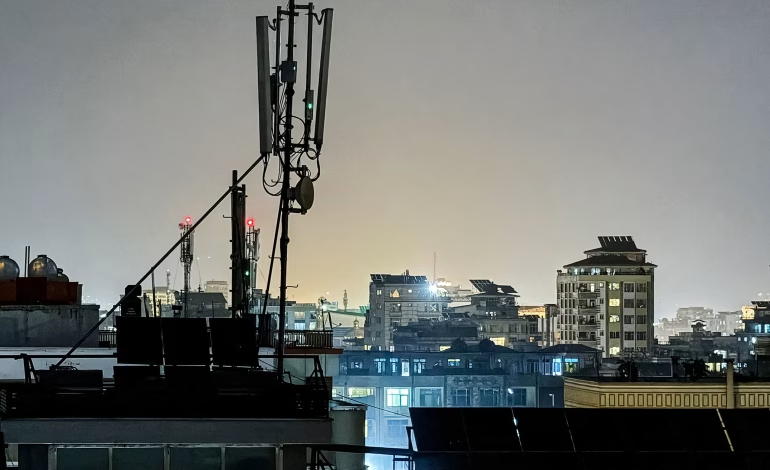Afghanistan has been pushed into a near-total communications blackout. Internet and mobile services collapsed nationwide this week after Taliban authorities ordered phased cuts that began Monday night and rolled through the system until connectivity was essentially flatlined. NetBlocks, which tracks global outages, said access sank to roughly 1% of normal levels. Kabul was hit hardest, with sharp drops also reported in Herat and Kandahar. By Tuesday, phone networks that share the same fiber backbone were sputtering too; local TV channel TOLOnews warned viewers that 3G and 4G would be switched off within a week, leaving only antiquated 2G.
Officials in Kabul offered no formal explanation, but the move follows weeks of fiber-optic shutdowns in multiple provinces justified on “morality” grounds. The country’s leadership, based in Kandahar, has grown increasingly hardline, banning women from most work and education, purging female authors from university curricula, and tightening controls on public life. Cutting the internet fits the same pattern: a blunt tool to restrict information, organization, and lifelines to the outside world.
The human impact is immediate and sweeping. Journalists and aid groups lost contact with offices in Kabul. Flights in and out of the capital were disrupted. Banks, hospitals, customs operations — everything that runs on data—stalled. Small businesses that depend on messaging apps and mobile money froze. For many women and girls, online classes were the last path to study; that avenue is now blocked.
“Our last hope was online learning. Now even that dream has been destroyed,” said one university graduate who had enrolled in distance courses after being barred from campus.
An English teacher in the east described 45 students being kicked out of an online exam mid-test when the connection died.
“It was heartbreaking,” he said.
Rights groups and the United Nations urged the Taliban to restore service, warning the blackout threatens already fragile economic stability and deepens one of the world’s worst humanitarian crises. UN officials noted the cuts undermine access to medical care and remittances, isolate women and girls, and hamper disaster response—especially alarming after recent earthquakes in the east. Inside Kabul’s markets, shopkeepers said business “is totally frozen.” A money changer in Takhar put it bluntly:
“Our work is down 90%.”
Taliban officials have previously flagged online pornography as a rationale for restrictions and hinted at “alternative” connectivity routes without providing details. For now, Afghanistan remains largely offline, a country of 43 million severed from basic communications “until further notice.” The blackout may be framed as a moral measure, but on the ground it’s a force multiplier for poverty and silence — switching off jobs, schools, news, and the thin digital thread that kept many Afghans connected to the world beyond their walls.
With input from Reuters, BBC, the Guardian, Al Jazeera, and NPR.










The latest news in your social feeds
Subscribe to our social media platforms to stay tuned